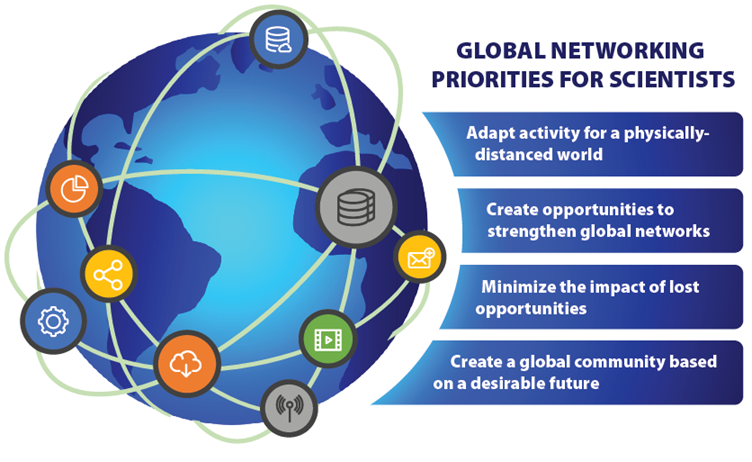Authors: Alistair J. Hobday, Carol Robinson, Eugene J. Murphy, Alice Newton, Marion Glaser, and Stephanie Brodie
Disruptions to global science networks have followed COVID-19 restrictions. Rather than wait for a return to normal, the authors propose in the newly published paper in Oceanography four areas that can ensure a productive and collaborative future for marine science:
- Adapt scientific activities for a physically distanced world
- Create opportunities to build and strengthen global networks
- Minimize the impact of lost opportunities
- Create a global community based on a desirable future
COVID-19 restrictions will likely persist for several years. The marine science community must develop innovative ways of compensating for the potential loss of opportunities derived from an active global network of scientists, ranging from assimilating cultural insight gained by working in different countries to learning practical skills in new techniques that are only available in limited locations. Without special effort, there is risk of breaking international networks and, at the same time, losing a cohort of scientists, impacts that will have a long-lasting detrimental effect on understanding and managing the global ocean. The authors call on senior leaders and funders of global and regional programs to engage with ECRs and to consider how the needs of both junior and senior scientists can continue to be met in the months and years following this deadly virus outbreak.
